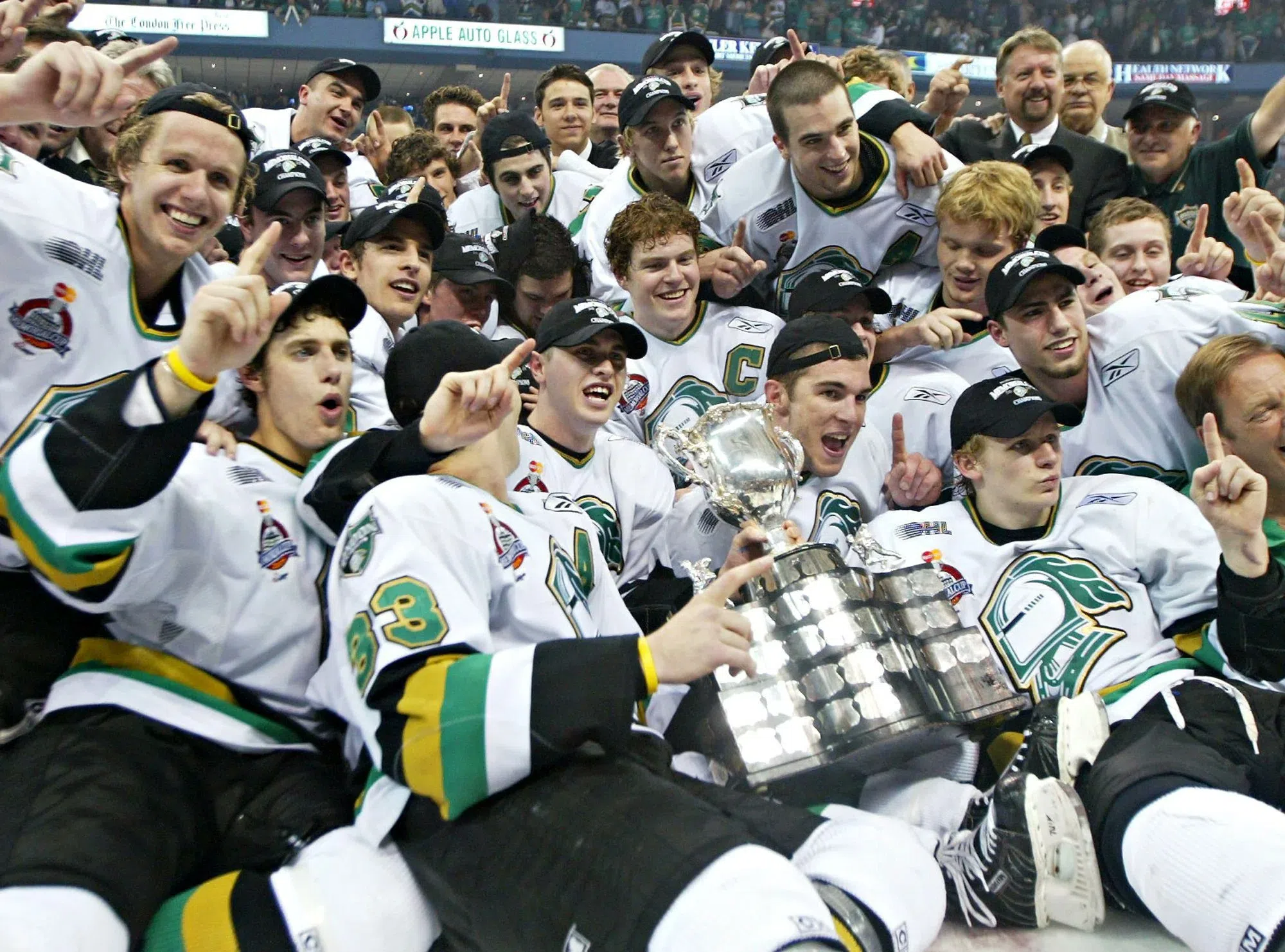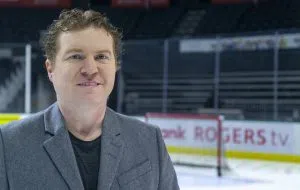
Danny Syvret (center of the photo wearing the "C" on his jersey) after winning the 2005 Memorial Cup with the London Knights (Credit: London Knights twitter)
Danny Syvret’s hockey journey took him from the rinks of his childhood to representing Team Canada at the World Juniors and eventually making his way to the NHL. After retiring from professional hockey, he transitioned into a successful career in finance and coaching.
In this conversation, Syvret opens up about his path from young hockey enthusiast to professional player, the challenges of retirement, and his new passion for coaching the next generation of players.
Syvret recalls the early days of his hockey journey. “I had an older brother; he’s nine years older than me. We grew up on a little bit of acreage with ponds that would freeze over. A lot of the time, I would just spend time out there until I got yelled at to come back inside late at night,” he says.
He claims to not have any aspirations of playing in the NHL at a young age. “I remember growing up and watching the World Juniors at Christmas time, and I thought that was really cool,” he says.
That dream eventually came true. Syvret was drafted into the Ontario Hockey League (OHL) by the London Knights in 2001. He played for the Knights from 2002 to 2005, winning the OHL championship and Memorial Cup with the team in 2005.
“We became the team of the century. I don’t want to say we put London on the map, but we sort of put the Hunter era on the map because they’ve been good ever since,” Syvret says.
In the same season, Syvret fulfilled his dream of representing Team Canada at the 2005 World Junior Championships. That year, the NHL was going through a lock out, allowing young stars like Sidney Crosby, Alex Ovechkin, Evgeni Malkin, Patrice Bergeron, and Ryan Getzlaf to play in the tournament.
“To be able to play for Team Canada was an amazing time. To be on a team with those guys was pretty special,” Syvret says.
The tournament took place in Grand Forks, North Dakota, not far from the Canadian border. “We had a lot of Canadians coming down from the North. It felt like we were sort of home at the time,” he recalls.
Later that year, Syvret was drafted into the NHL by the Edmonton Oilers. On Nov. 4, 2005, he played his first NHL game against the St. Louis Blues.
Syvret went on to play 54 career NHL games, splitting time between the NHL and AHL (American Hockey League). He played 644 games in the AHL and spent the final two years of his career playing in Germany.
Eventually, every professional athlete faces the difficult decision of when to retire. For Syvret, it was the birth of his kids that led him to step away from the game. “We had twins, a boy and a girl, on the way when I was playing over in Germany. Ultimately, that’s what sort of made me stop,” Syvret says.
“I wasn’t really willing to start a family in a foreign country. I felt like it was time to settle down at home somewhere, and then I ended up getting into finance.”
Syvret had developed an interest in the stock market early in his career, and by the end of it, he was ready for a new chapter. “I ended up doing the school work and getting all my credentials to start my own financial firm, which I have here in London,” Syvret says.
He credits his reputation, relationships, and trust built through his hockey career for helping him transition to business. “I think it doesn’t really change when you turn into a business owner or financial manager,” he adds.
After a few years of retirement, Syvret was asked by a friend to help coach a minor bantam hockey team. “I went out and helped a couple of practices, and it just got me sort of addicted to it,” he says.
In the 2019-2020 season, Syvret became a coach with the Elgin Middlesex Chiefs U16AAA team. The following season, he joined the London Jr. Knights U16AAA staff, and in 2022-23, he became head coach.
“I will jump into drills every once in a while or play three-on-three, which is funny because I’d say I still can make plays at that level. I’ll make a couple of good plays, and the players will be like, ‘Wow, coach, you’re actually good,” he says while laughing.
Surprisingly, Syvret says he doesn’t miss playing the game much, but there is one thing he longs for. “The element I missed was sort of the competitiveness and just being around the locker room,” he says.
For the full conversation with Danny Syvret, listen to this week’s episode of Almost 107 called Life After Hockey: Danny Syvret’s Journey at the link below, or wherever you get your podcasts.












